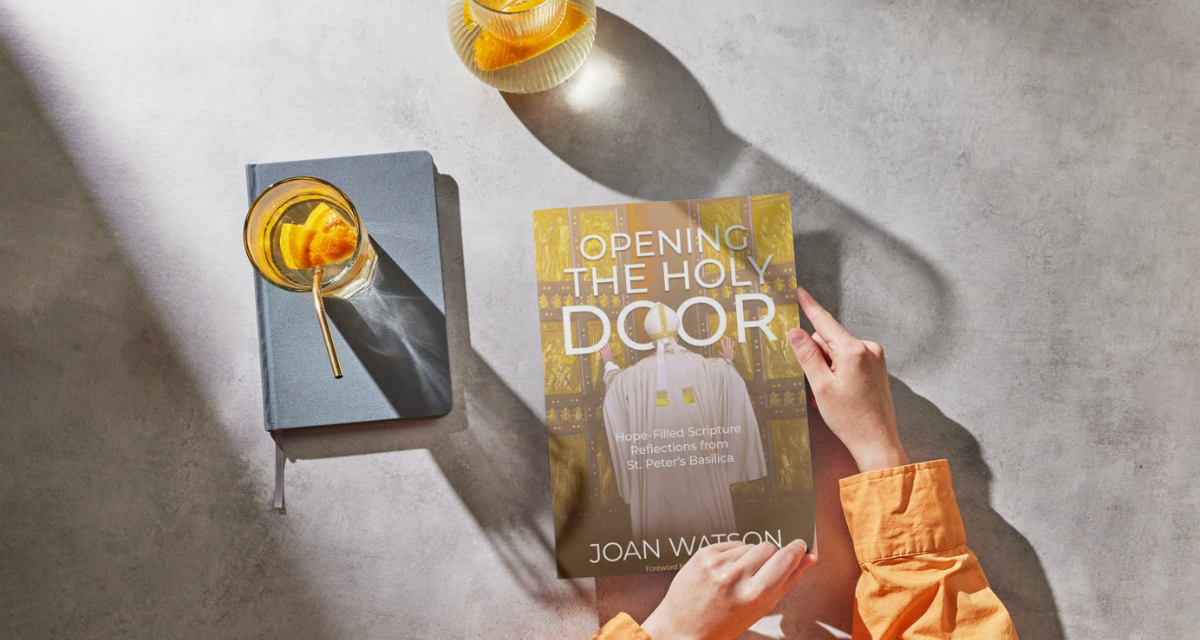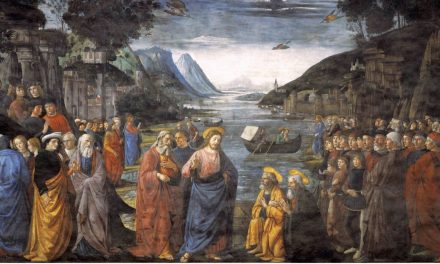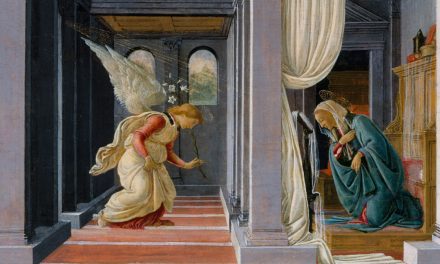Perhaps none of us dared to put “hope” on our Christmas list this year. But maybe we should have. On December 24, Pope Francis will begin the 25th ordinary Jubilee by opening the Holy Door at St. Peter’s Basilica in Rome. The theme for this Holy Year is Pilgrims of Hope.
Some of us might remember the “Great Jubilee” of 2000. In a sense, John Paul II viewed his entire papacy as a preparation for the new millennium, and he saw his mission to shepherd the Church across the “threshold” during this Jubilee celebration. His whole pontificate was marked with language that propelled us forward to that Holy Year and that moment when he would open the Holy Door at St. Peter’s Basilica. His very first homily as Pope encouraged us to “open wide the doors for Christ.”
Twenty-five years after that Jubilee Year, we now have another chance to participate in an ordinary Jubilee and open the doors of our hearts. While a Pope can call a Jubilee any time he wants, ordinary Jubilee Years are held every twenty-five years to be particular moments of grace in the life of the Church.
Perhaps it is easy to look around, whether on a macro level or a micro level, and feel a twinge of despair at the state of the world, the culture, or even our own family. If you feel anxiety or fear, frustration or confusion–you are not alone. But Jesus wants to give you hope this year.
The Holy Door at St. Peter’s Basilica remains closed except during Jubilee years; so closed, in fact, that there is a wall built on the other side of it. But the beautiful front of the door is always visible. With its 16 bronze panels, the door depicts stories from salvation history: stories of hope. Whether it is the cure of the paralytic, the denial of Peter, the doubt of Thomas, or the Good Shepherd, each depiction reminds us that there are answers to our anxieties, acknowledgment of our frustration, and help for our fear.
Some of us will never know life without suffering. The cures in the Bible may seem to taunt us as our prayers look to go unanswered. Like Peter, we give into temptation and fear and sin. We deny Christ and hurt our neighbor. At times we, like Thomas, deny the Lord’s goodness and power. But none of these things prevent us from hope; the Good Shepherd is ready to search and bring us home.
What Jesus offers is a freedom that is not impeded by earthly burdens. Yes, the healings and cures performed by Christ throughout his public ministry are astonishing. The people Jesus cured picked up their mats, stretched out their hands, and opened their eyes. But those physical cures are only signs and shadows of the real work he is capable of doing. Jesus came to bring the sons and daughters of Adam true freedom, joy, and peace. He came to forgive us and pick us back up.
This year, let the Holy Door at St. Peter’s remind us that the Lord is always waiting for us. The door to him is never closed, no matter how far we have wandered, no matter how much we have suffered, no matter how dark the world seems. Rather than placing our hope in the things of this world–leaders who disappoint us, financial security that can disappear tomorrow, or health that fails us–let us place our hope in him.
Whether you can go on pilgrimage to Rome or not, there are several ways you can participate in the Jubilee even at home.
- Pray with my new book. My new book from Ave Maria Press, Opening the Holy Door: Hope-Filled Scripture Reflections from St. Peter’s Basilica is a companion for anyone who wants to dive into the Scriptures and find a reason for our hope. It walks you through the panels on the Holy Door at the basilica, calling you to reflect on both the images themselves and the Scripture passages they depict.
- Go on a local pilgrimage. A pilgrimage does not have to be international, it simply must be intentional. There are national and local shrines all over the United States. Even your local parish can be a place of pilgrimage, when you set aside time to seek the Lord. Make a pilgrimage in hope.
- Visit the sick and those in need. We can also make pilgrimages to Christ present in our neighbors. When Pope Francis formally announced the Jubilee Year, he encouraged us to be “tangible signs of hope” for our brothers and sisters in need. Therefore, the Jubilee indulgences that are usually reserved for pilgrimage to Rome are also given to those who perform acts of mercy, including visiting the sick, prisoners, the homebound, or those with disabilities.
- Receive the Sacrament of Reconciliation. From its very roots in Judaism, Jubilee Years are times of great mercy. In Leviticus 25, we see the Lord commanding the people to spend the year forgiving debts and releasing captives. This was a sign of the real freedom we need: freedom from sin and death. The Lord is offering us this mercy in the sacrament of Reconciliation. Regardless of how long it has been, return to the sacrament where he is waiting with love to welcome you home.
- Be a sign of hope. Maybe it is as simple as a smile to a stranger or a word of kindness to a cashier or waiter. Every interaction with someone is a chance to show them charity and give them hope. When the conversation with friends or coworkers turns to pessimism, offer a word of hope. When you are tempted to complain or gossip, hold your tongue and offer it back to the Lord.
When you do not feel hopeful, remember that it is a virtue, a gift from God. When was the last time you asked the Lord to increase your hope? He wants to give it to you! Open wide the door of your heart to him.
Please help spread the Gospel. Share Joannie’s post with family and friends on Facebook and other social media.
We are grateful for your support…
We welcome both one-time and monthly donations. A monthly subscriber giving just $10 a month will help cover the cost of operating Integrated Catholic Life for one day! Please help us bring enriching and inspiring Catholic content to readers around the world by giving today. Thank you and may God Bless you for supporting the work of Integrated Catholic Life!














